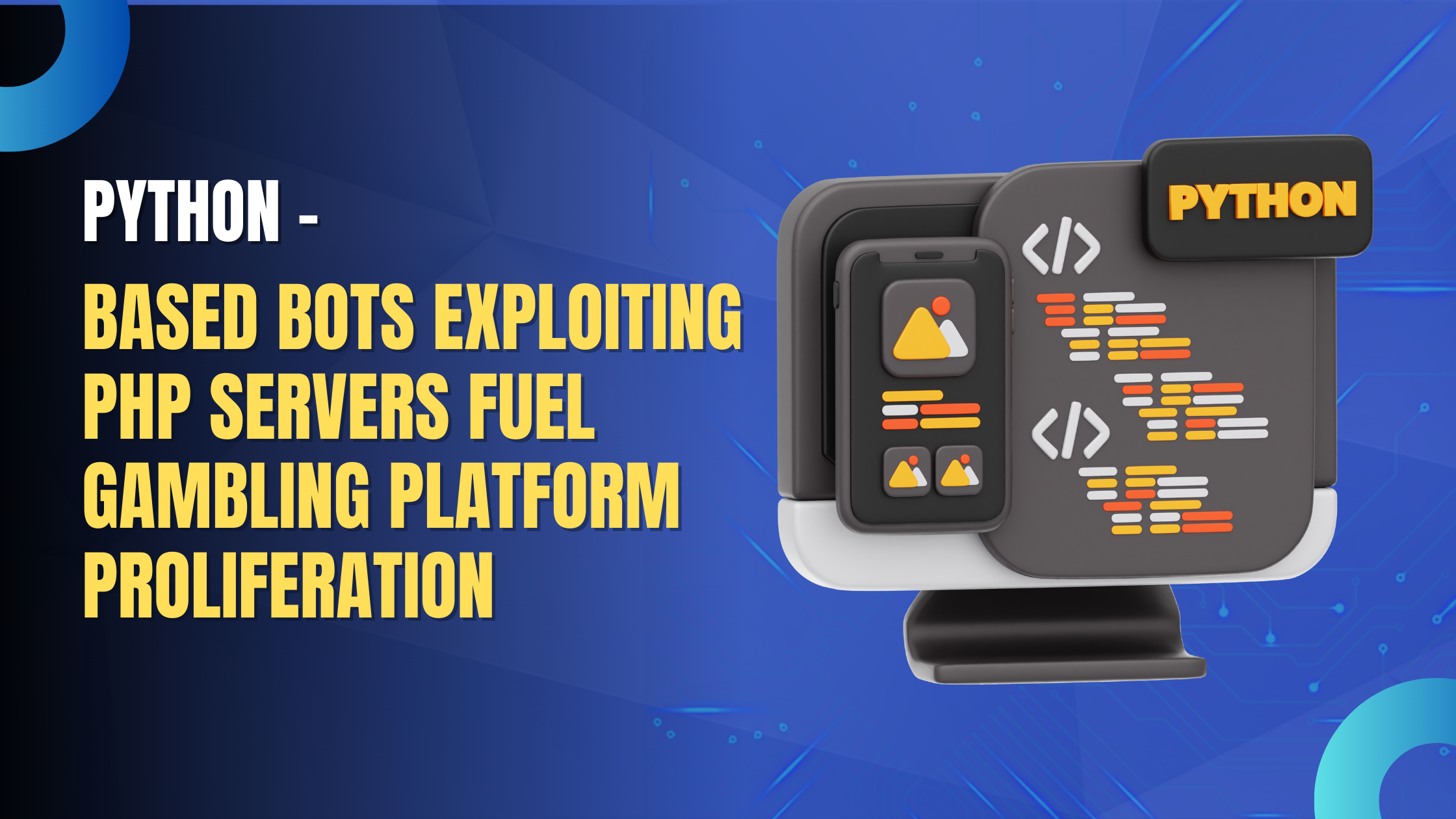Python-Based Bots Exploiting PHP Servers Fuel Gambling Platform Proliferation
The intersection of cybersecurity and malicious automation is witnessing a new trend: the exploitation of PHP servers by Python-based bots to fuel the growth of illegal gambling platforms. This evolution in cybercrime is a wake-up call for web administrators, developers, and cybersecurity professionals alike. Here, we delve into how these Python-based bots operate, their impact, and how organizations can defend against them.
Understanding the Threat: Python-Based Bots
Python, known for its versatility and ease of use, is increasingly being weaponized to create sophisticated bots. These bots exploit vulnerabilities in PHP servers, a common backbone for websites and web applications, to infiltrate systems and host or proliferate gambling platforms.
Key Characteristics:
- Automation at Scale: Bots execute scripts that target multiple PHP servers simultaneously.
- Exploitation of Vulnerabilities: They leverage known weaknesses in PHP versions, unpatched plugins, or misconfigured settings.
- Persistence: Once access is gained, bots establish backdoors to maintain control and facilitate recurring activities.
How These Bots Operate
- Reconnaissance:
- Bots scan the internet for PHP servers using tools like Shodan.
- They identify targets based on outdated software versions, weak configurations, or exposed endpoints.
- Exploitation:
- Attackers deploy exploits tailored to specific PHP vulnerabilities, such as SQL injection, remote file inclusion, or cross-site scripting (XSS).
- Payloads are executed to gain administrative privileges.
- Deployment:
- Compromised servers are used to host illegal gambling websites or redirect traffic to these platforms.
- Bots ensure continuous operation by installing rootkits or malware to evade detection.
- Proliferation:
- The botnets spread by targeting additional servers, creating a vast network of compromised systems.
The Impact of PHP Server Exploitation
- Economic Losses:
- Businesses suffer from downtime, data breaches, and loss of trust.
- Legal implications arise from hosting unauthorized gambling platforms.
- Reputational Damage:
- Compromised servers tarnish the image of legitimate organizations.
- Users and clients lose confidence in affected websites.
- Resource Drain:
- Hijacked servers consume excessive bandwidth and processing power.
- Organizations incur additional costs for mitigation and recovery.
Indicators of Compromise (IoCs)
Detecting bot activity early is crucial. Look for these IoCs:
- Unusual Traffic Patterns: High volumes of outgoing traffic to unknown IP addresses.
- Unauthorized File Changes: New files or scripts appearing without admin knowledge.
- Performance Degradation: Servers running slower than usual due to resource hijacking.
- Logs Anomalies: Suspicious login attempts or file requests in server logs.
Mitigation Strategies
- Secure PHP Servers:
- Regularly update PHP versions and apply security patches.
- Remove unnecessary plugins and modules to reduce the attack surface.
- Implement strong authentication mechanisms for server access.
- Deploy Web Application Firewalls (WAF):
- Block malicious requests and traffic patterns.
- Identify and prevent exploitation attempts in real-time.
- Monitor and Analyze Logs:
- Continuously review server logs for unusual activities.
- Use automated tools for anomaly detection.
- Restrict Access:
- Limit server access to trusted IPs and users.
- Disable unnecessary services and ports.
- Educate and Train Staff:
- Train developers and administrators on secure coding and configuration practices.
- Conduct regular cybersecurity awareness sessions.
- Backup and Recovery Plans:
- Maintain regular, encrypted backups of critical data.
- Test recovery procedures to ensure business continuity.
Conclusion
The exploitation of PHP servers by Python-based bots is a stark reminder of the importance of robust cybersecurity measures. These bots—crafty, persistent, and damaging—highlight vulnerabilities in web infrastructure that cannot be ignored.
By understanding the tactics of these bots and implementing proactive defense mechanisms, organizations can safeguard their PHP servers and digital assets. As the threat landscape continues to evolve, vigilance and adaptability are essential in the fight against cybercrime. Protect your servers today to prevent becoming an unwitting participant in the proliferation of illegal activities.


